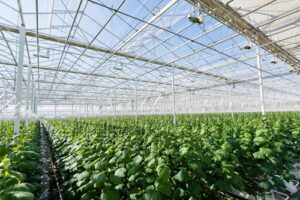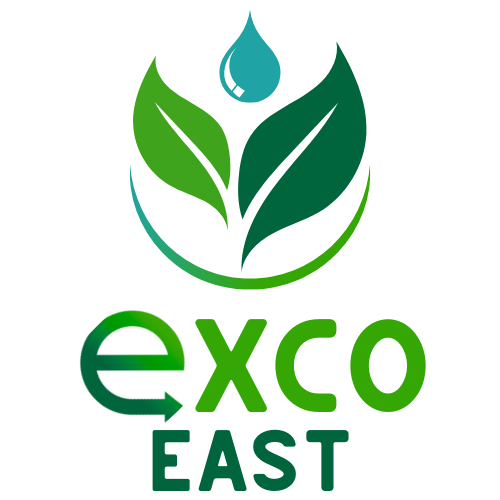
Agricultural Uses of HOCL
Hypochlorous acid (HOCl) is a naturally occurring substance that has gained attention for its wide range of practical uses. Because it is safe, non-toxic, and environmentally responsible, HOCl is now being used across agriculture, horticulture, nurseries, and even for household and ornamental plants. Unlike many synthetic chemicals, HOCl leaves no harmful residues, is biodegradable, and is considered safe for humans, pets, and plants. This makes it an excellent option for growers, farmers, and homeowners who want reliable support for plant health while maintaining environmental balance.
Below is an overview of the many ways Hypochlorous acid can be applied in different settings.
1. Agricultural Crops
Seed Treatment
Before planting, Hypochlorous acid can be used to clean seeds and reduce surface contaminants. A cleaner start can support germination and contribute to healthier crops.
Foliar Spray
Applied directly to leaves, Hypochlorous acid helps reduce common issues associated with fungi and bacteria such as mildew, blight, and leaf spots. Because it leaves no toxic residues, it can be safely used on edible crops throughout the growing season.
Soil and Root Zone Care
When applied through drip irrigation or as a soil drench, Hypochlorous acid supports cleaner soil and root zones by reducing microbial buildup, promoting conditions that favor healthy root development.
Post-Harvest Rinse
After harvest, fruits, vegetables, and grains can be rinsed with HOCl to help reduce spoilage organisms. This can naturally extend shelf life, reduce waste, and maintain product quality.
Greenhouse Use
In controlled environments, HOCl helps reduce disease pressure and limits algae buildup in hydroponic systems, resulting in cleaner systems and stronger crops.
2. Nurseries (Seedlings, Saplings, Ornamentals)
Seedling Support
Young plants are highly susceptible to stress and disease. Hypochlorous acid applications can reduce early microbial buildup around stems and roots, helping seedlings grow more vigorously.
Irrigation Water Cleaning
Hypochlorous acid helps keep irrigation lines clear by reducing biofilm, algae, and microbial growth. This promotes consistent water flow and quality for sensitive nursery crops.
Propagation and Cuttings
Propagation trays, rooting media, and tools can be cleaned with HOCl. Regular cleaning helps reduce cross-contamination and creates a healthier environment for cuttings to thrive.
Managing Nursery Concerns
Pathogens like Botrytis (gray mold) and Phytophthora are common challenges in nurseries. Hypochlorous acid supports sanitation practices that can help reduce their impact on young and ornamental plants.
3. Household and Ornamental Plants
Leaf Spray
HOCl can be sprayed on indoor and outdoor plants to reduce the presence of mildew, mold, and bacterial leaf spots. Because it is non-toxic, it can be used safely around people and pets.
Soil Drench
For potted plants, HOCl helps suppress common soilborne issues and reduces conditions that attract fungus gnats—a frequent nuisance in homes.
Tool and Pot Cleaning
Garden tools, pots, and watering cans can be cleaned with Hypochlorous acid to prevent the transfer of soil and microbes from one plant to another.
Algae Reduction
Decorative water features, trays, and hydroponic systems often experience algae growth. Hypochlorous acid helps reduce buildup without introducing harsh chemicals.
Key Benefits
-
Safe and residue-free – Suitable for humans, pets, and plants.
-
Supports sanitation – Helps reduce unwanted microbes in soil, water, and surfaces.
-
Environmentally responsible – Biodegradable and sustainable.
-
Versatile – Useful in agriculture, nurseries, greenhouses, and home gardening.
Frequently Asked Questions
What is Hypochlorous Acid (HOCl)?
HOCl is a naturally occurring, non-toxic substance used to clean, deodorize, and support plant health.
Is it safe for food crops and household plants?
Yes. HOCl is recognized for food-contact use, meaning it can be safely applied to fruits, vegetables, and ornamentals.
How does it benefit farmers and nurseries?
It supports cleaner water systems, reduces microbial buildup, helps seedlings establish stronger roots, and minimizes waste after harvest.
Can it replace traditional pesticides?
HOCl is not a pesticide. However, it can complement integrated crop management strategies by reducing the need for harsh chemicals.
How is it applied?
HOCl can be used as a spray, in irrigation systems, or as a rinse or drench depending on the setting.
Why Choose Exco East LLC?
At Exco East LLC, we provide high-quality HOCl solutions designed for agricultural operations, nurseries, and household use. Our mission is to help growers and homeowners care for their plants sustainably—without toxic chemicals.
Protect your crops, seedlings, and houseplants the safe way. Contact Exco East LLC today to learn how our HOCl solutions can support healthier plants, reduce waste, and promote environmental responsibility.
Exco East, LLC
3095 Bashor Rd
Conway, SC 29526
843-997-0239
https://excoeast.com/
